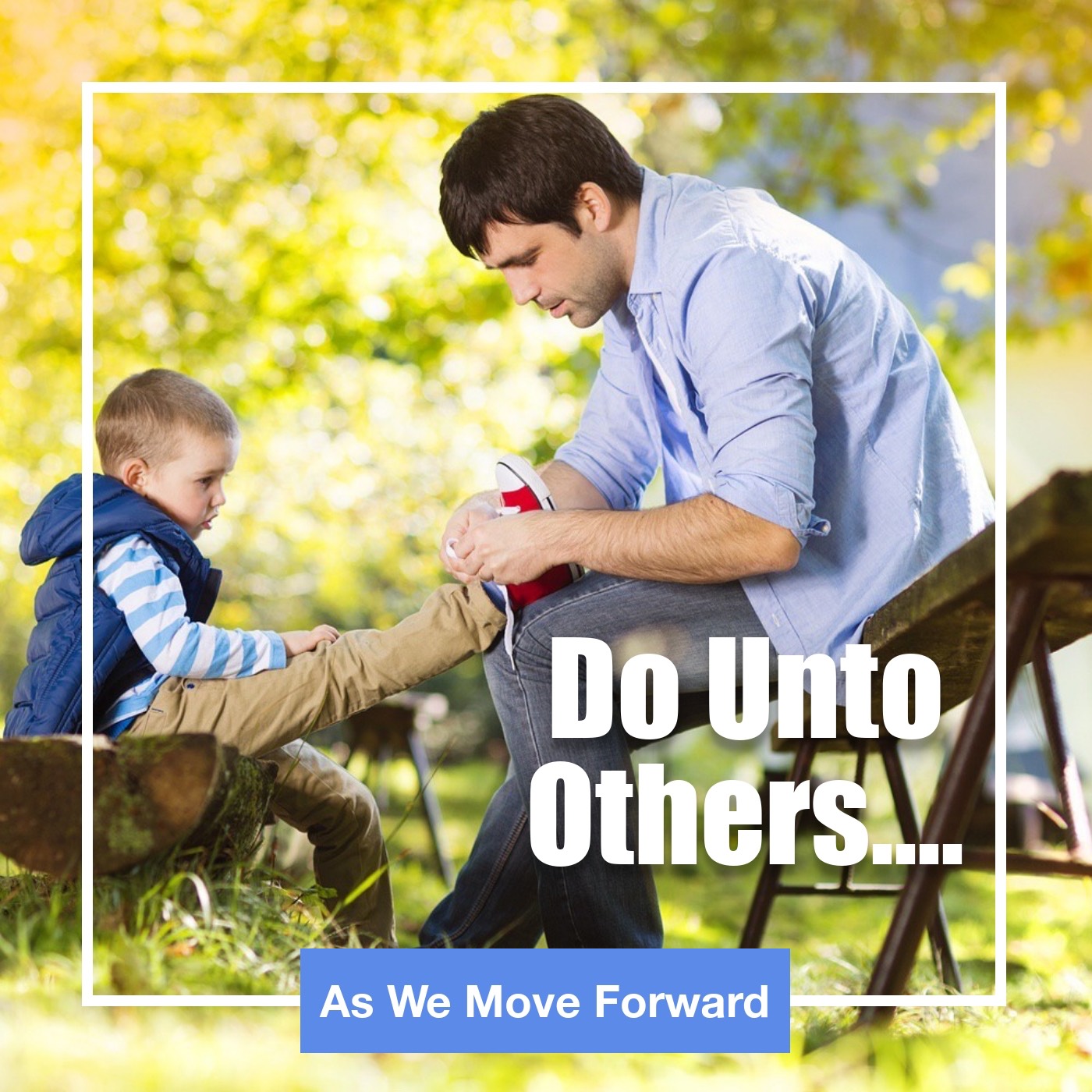 This is a phrase that practically everyone has heard. It can be used to encourage the very best behavior. There are some basic presumptions behind this teaching. When we begin life, this is as far from reality as we get. A tiny baby only wants its own needs met immediately. As toddlers, we struggle with putting others first. We learn independent play while others are close by. There is little if any interaction even if there are a number of children in the group. It is still doing what each child wants. The only interaction likely in these situations is likely to happen if one child wants a toy someone else is playing with and makes an effort to take it away.
This is a phrase that practically everyone has heard. It can be used to encourage the very best behavior. There are some basic presumptions behind this teaching. When we begin life, this is as far from reality as we get. A tiny baby only wants its own needs met immediately. As toddlers, we struggle with putting others first. We learn independent play while others are close by. There is little if any interaction even if there are a number of children in the group. It is still doing what each child wants. The only interaction likely in these situations is likely to happen if one child wants a toy someone else is playing with and makes an effort to take it away.
We do learn to behave better with other people. We learn rules like raising our hand to be given permission to speak, cooperating with others on a group or a team when working on a project or playing a team sport. Even this behavior does not rise to the standard of “Do unto others….” The goal of completing a group project or being successful in a team sport places the goal on completing the task at hand. These efforts may stop at even cooperating with others, using your own particular skill to achieve the overall goal. This may be a worthy goal, but is not the same.
As we mature, hopefully we develop relationships where the needs and desires of other people are important to us. The willingness to treat others in the same way we would want them to treat us requires incredible self awareness. There is a tendency today to react to what others say or do without any real regard to what consequences might occur as a result.
Social media gives us an audience for our instant reaction to almost anything. I have heard many people comment on how easily a text can be misunderstood. Face to face communication, especially with the commitment to listen to what the other person is really saying increases the chances of our treating others with courtesy and respect implied in this advice.
 As we move forward, it serves us well to put ourselves in the other person’s place before we act. Asking how your actions would make you feel can go a long way toward improving all of our relationships. How would anger or other strong emotion that is driving the thing you are about to do make you feel?
As we move forward, it serves us well to put ourselves in the other person’s place before we act. Asking how your actions would make you feel can go a long way toward improving all of our relationships. How would anger or other strong emotion that is driving the thing you are about to do make you feel?
We will never be perfect in this, but as we move forward, the progress we make will have some amazing results.
If you would like to receive new As We Move Forward posts, please subscribe to the As We Move Forward mailing list by clicking here. I release entries on a bi-weekly basis.We have a podcast containing the As We Move Forward articles read by Jae Bloom.

